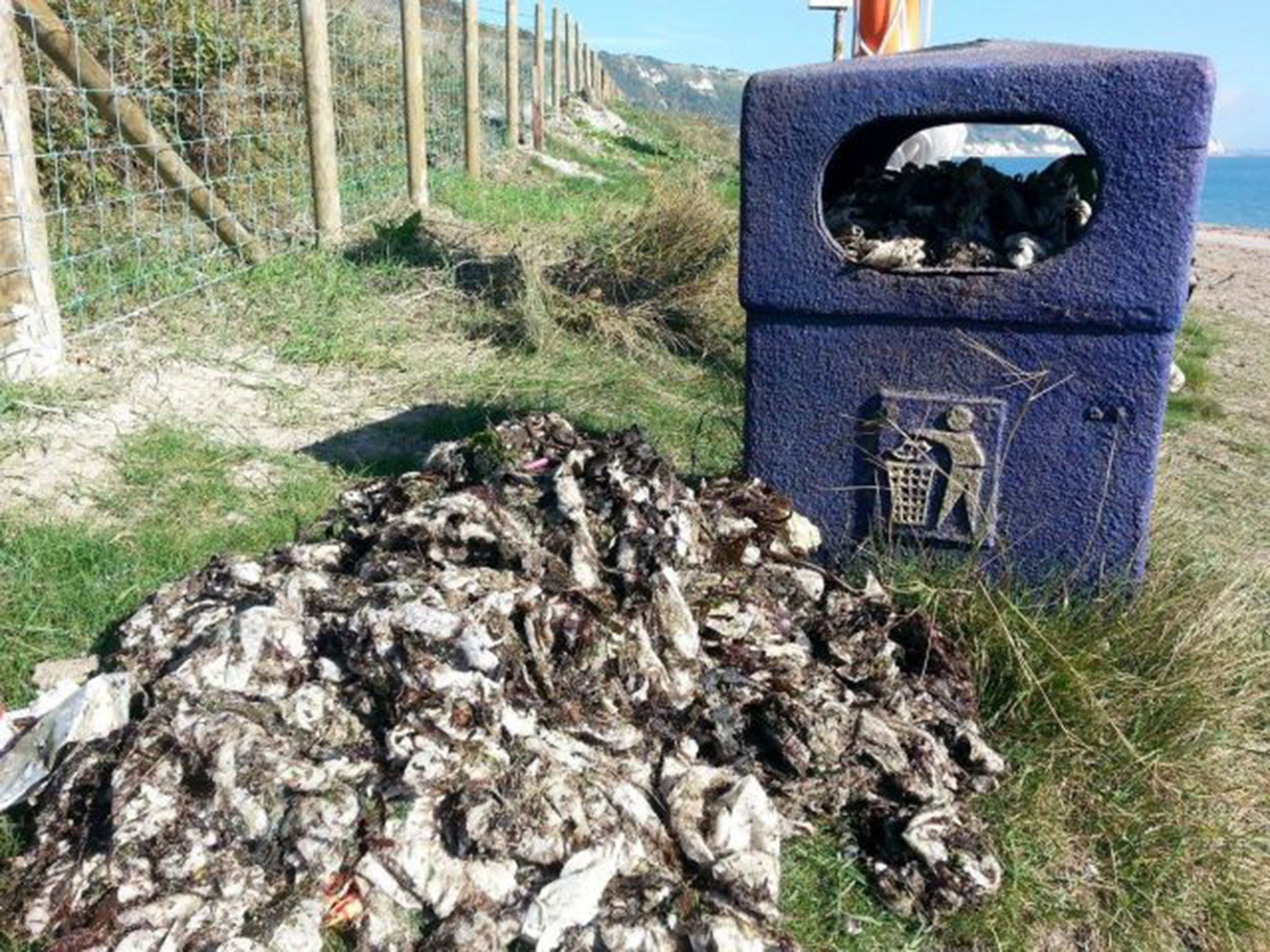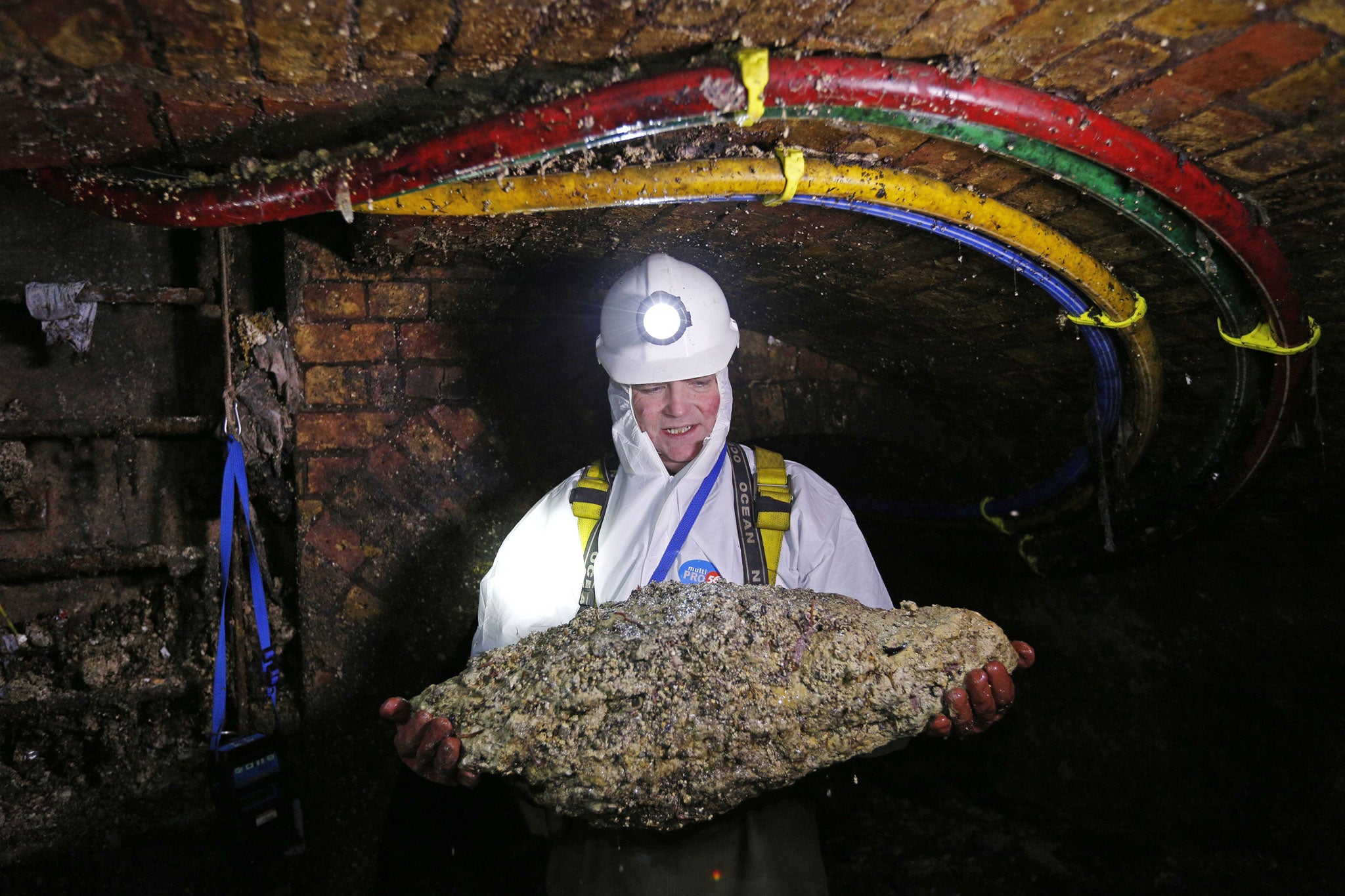Soaring sales of wet wipes have contributed to increase in debris on beaches and 'fatbergs'
Simon Usborne investigates why we've become so obsessed with the moist squares of pseudo cloth, and what impact they are having on our environment

At the LinkedIn wet wipe industry networking portal, which is managed by executives at Kansan Wet Wipe Machinery and Equipment in Turkey (its Jumbo 24 series can produce 19,200 wet wipes per minute), the members' page includes a list of the products it covers. If evidence were needed of the wipe-industrial complex that now guides our hygiene habits, read it and wipe: "Baby wipes, adult wipes, incontinence wipes, intimate wipes, sanitary wipes, personal care and cleaning wipes, make-up removal wipes, cosmetic wipes, surface-cleaning wipes, heavy-duty wipes, floor wipes, disposable wipes, organic wipes."
That's a lot of wipes for a lot of wiping tasks (apologies for the frequency of "wipe" here, but it's a great word when you think about it). And not even a look-in for the towelette, the synonymous serviette to the wet wipe's napkin. How did we become so obsessed with these moist squares of pseudo cloth, and why are we reaching a new phase in a global war on wipes?
First, the bad stuff. Wipes might be convenient, efficient and fragrant (at L'Occitane en Provence they come "delicately perfumed with citrus-scented verbena" and cost 50p per wipe) but they aren't good for much else. The Marine Conservation Society published a report yesterday into sewage-related debris on our beaches. It revealed a 50 per cent rise in wet wipes, which volunteers picked up last year at a rate of 35 wipes per kilometre of coastline.

It's the same story in our cities, where wipes are a major ingredient in "fatbergs" in our sewers. The solid blobs of oil, grease, food and hygiene products have been weighed at up to 15 tonnes (residents of Kingston, Surrey, knew about that one, in 2013) and can cause flooding of the worst kind. Thames Water spends £12m a year tackling the problem and warns that even "flushable" wipes stick around underground. It now promotes Freshu, a foaming gel designed to be applied to bog standard loo paper, as a sort of DIY, sewer-friendly wet wipe.
So you bin your wipes instead? Hello, landfill. Yet still we wipe. And as our shifting sanitary sensibilities leave us vulnerable to aggressive marketing, it's the hygiene industry that is cleaning up. Wipes evolved from toilet paper and grew through the 1990s in line with disposable nappies, but they have only leapt off the changing mat in the past decade.
According to Rockline, one of the biggest players in wipes, the global market was worth more than £9bn in 2012, and was expected to hit £12.5bn by 2017. In January, Nice-Pak, an American wet wipe manufacturer, won permission to build a factory on the site of a former power station in Wigan. Its second UK facility will be the biggest building in the town, a flushed Wigan Council said.

The Hygiene Company, based in Essex, added wipes to its product list seven years ago, and now supplies them by the roll to hotels, gyms and offices. "It's been an absolutely massive increase," a spokesperson says. The rise of hot desking and gym membership (wipes are replacing paper towel and spray as a quicker way to clean sweaty machines) are part of the reason for the boom, she adds.
Wet wipes are known in the industry as "nonwoven" fabrics and can be made from a combination of plastics, wood pulp, and/or cotton. The material is tangled into a sort-of cloth using high-pressure water, heat or air. (It is these tangles that can be hard to undo, although many manufacturers stand by the biodegradable and recyclable claims. Moreover, demand has grown for thicker wipes to prevent "poke-through"). The wipes are then impregnated with a combination of preservatives, cleaning and moisturising agents, and fragrances – and sealed.
![Actor Terrence Howard said: 'If [women] are using dry paper, they aren't washing all of themselves. It's just unclean' (Getty)](https://static.independent.co.uk/s3fs-public/thumbnails/image/2015/03/18/20/179760133.jpg)
The frequency of wipe-bound fatbergs in sewers used to map the prosperity of a city, but demand has democratised wipes in the home, which can be as cheap as a penny a pop. And the messages that tell us we need them for more than babies are strengthening. In an interview in Elle magazine, walking website Will.i.am used a chocolate-on-floor scenario to explain his fondness for wipes. "Try to get it up with some dry towels. You're going to get chocolate in the cracks," the music producer said. "That's why you gotta get them baby wipes."
Terrence Howard, the US actor, revealed the role of sexist squeamishness in the rise of the wipe. "If [women] are using dry paper, they aren't washing all of themselves," he told Elle. "It's just unclean. So if I go in a woman's house and see the toilet paper there, I'll explain this." (One only hopes those women show him right back out again). In 2009, the rapper Cam'Ron offered the charming instruction "Go get ya wet wipes, go get ya wet wipes", as the chorus line on his track, "Wet Wipes".
Yet these men may yet regret their habits. Craig Rance runs the "Bin It" campaign at Thames Water. "Call me old fashioned, but I'd take loo roll over a bathroom full of raw sewage any day," he says.
Join our commenting forum
Join thought-provoking conversations, follow other Independent readers and see their replies
Comments